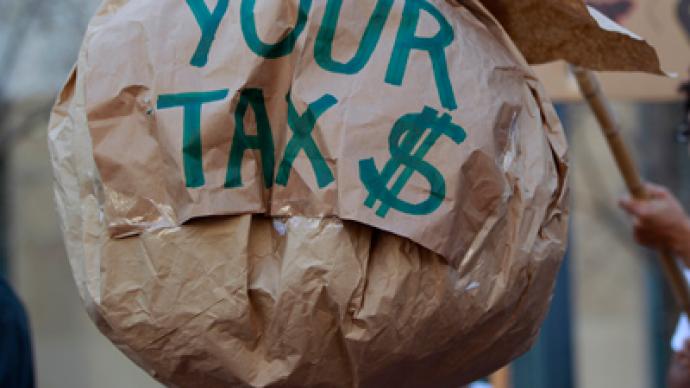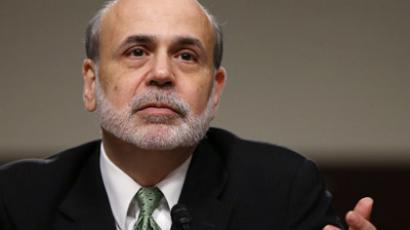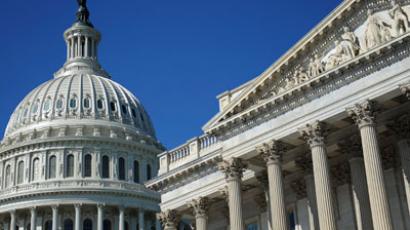US taxes to go up in 2013 regardless of 'fiscal cliff' deal

President Barack Obama wasn’t lying when he said he’d raise taxes on the wealthiest Americans if reelected — but it won’t be just the top wage-earners who will be handing over more to Uncle Sam in 2013.
Under a last minute Capitol Hill agreement expected to avert the much-feared ‘fiscal cliff’ disaster that has dominated politics in recent weeks, working Americans across the board will see a little extra of their income collected in the form of a federal tax starting immediately. No matter what your annual salary may be, US workers will have to part with an additional 2 percent of their paycheck in order to cover the cost of Social Security. While Congress did act in a matter that will keep income taxes from rising on middle-America, in doing so they allowed a temporary reduction in the Social Security payroll tax that was enacted under President George W. Bush to expire. Extensions on that tax break have allowed Americans to hold onto more of their income during the last several years in lieu of sending it to cover the cost of the Social Security welfare program, financed by a 12.4 percent tax on wages up to $113,700. During 2011 and 2012, Bush-era tax cuts kept the share of US workers’ at only 4.2 percent, with employers responsible for the rest. That reduction expired on Wednesday, however, and with no action taken by Congress it will increase to its old standard.Starting immediately, US workers will lose 6.2 percent of their paychecks in order to fund Social Security. The Associated Press says this will cost a typical American family earning $50,000 annually around $1,000 in 2013.The Tax Police Center, a nonpartisan think-tank based in DC, expects that the return to the 6.2 percent standard will see an extra $100 billion added to the economy in the new year. According to the AP, that won’t mean too much to lower- and middle-class America, but will impact the paychecks of top wage earners but quite a bit: households earning over $1 million annually will see their taxes increase by around $170,000 because of the expiration."If you're rich, you're almost certain to get a big tax increase," Roberton Williams of the Tax Policy Center explains to the AP.Meanwhile, the majority of Americans will be spared by tax hikes elsewhere. The last minute deal agreed on by the House and Senate will see income taxes go up for individuals making over $400,000 a year and families earning over $450,000. Those wage earners will see their income taxes go up from 35 percent in 2012 to 39.6 percent in 2013.Even when all is said and done, though, it won’t be an ending that Washington will be able to call a certain success. The Congressional Budget Office says the fiscal cliff deal hammered out this week will add around $4 trillion to the national deficit during the next decade.














